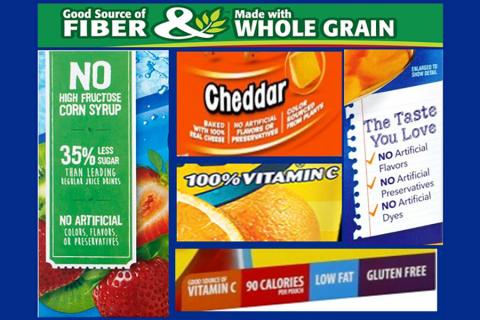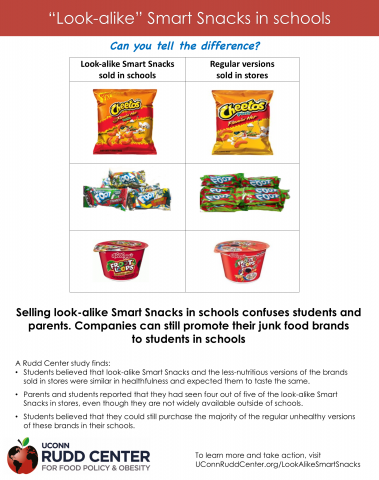Sally is the Director of Advocacy Resources at the UConn Rudd Center for Food Policy and Obesity, leading efforts to inform the public, community organizations, parent advocates, and policy makers about the Center’s research related to food marketing to children and its impact on health. She also helps state and local advocates develop the resources necessary to support food policy improvements in all communities. She live in Connecticut with her husband and three children ages 3-11.
Blog Post List

November 2, 2017
I admit; I can be swayed by the food industry’s marketing messages. When I see ads depicting fruits and vegetables or using physical activity to promote food or drinks, it causes me to think that products may be healthier than they actually are. And it turns out kids think the same thing. A new study from the Rudd Center for Food Policy and Obesity at the University of Connecticut found that nutrition and/or physical activity messages in commercials for unhealthy food or drinks make these products more attractive to children. Rudd researchers also found that children believed that mom or dad...
MomsRising
Together

November 1, 2016
What toddler isn’t a picky eater? One day she loves broccoli and the next, it’s all over the floor. It is downright hard to find food that your child will try, let alone eat. As mothers, I’m sure that most of us have been concerned at one point or another that our child is either eating nothing or eating all the wrong things. It turns out food companies know our frustration and are using the marketing of baby and toddler food, and drink products, to play into our fears. A new report released today by the UConn Rudd Center for Food Policy & Obesity takes an in-depth look at the marketing...
MomsRising
Together

August 31, 2016
Have you had lunch at your child’s school and sat there wondering why kids are still allowed to purchase Doritos and Cheetos, even after the USDA heralded in the Smart Snacks in School guidelines a few years back? Well it turns out that food companies reformulated many of their branded snack foods to meet the Smart Snacks guidelines. The Doritos and Cheetos that children are purchasing in schools are nutritionally better than the ones for sale in the grocery or convenience store but the packaging is virtually indistinguishable, which is why they’ve been labeled as copy-cat or look-alike smart...
MomsRising
Together

